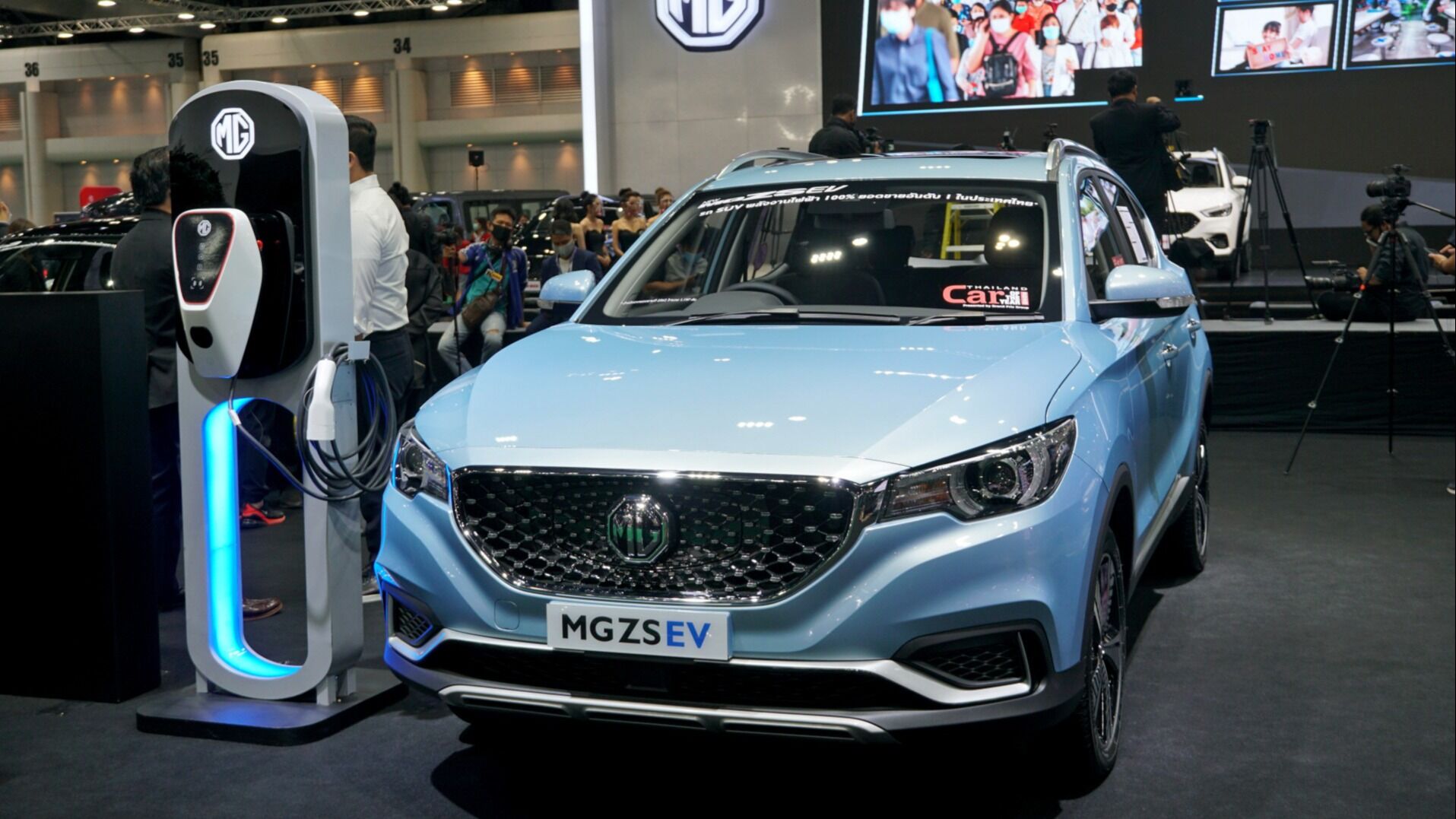EV excitement with a shock: Thailand’s green dream hits a snag

Thailand’s electric vehicle (EV) industry may be sparking excitement but beneath the surface, a storm of challenges is threatening to short-circuit the nation’s EV ambitions. Despite a surge in EV usage, the sector is grappling with poor domestic car sales, sluggish economic growth, crippling household debt, and cutthroat pricing wars that could derail its progress.
Chinese EV manufacturers, with their eyes keenly fixed on Thailand’s market potential, face high local production costs. Meanwhile, the Thai government is under pressure to electrify the situation by morphing the country into a regional EV powerhouse.
The Federation of Thai Industries (FTI) has clipped its forecast for new EV registrations to 80,000 this year, slashing its earlier target of 100,000. Surfacing frustrations, FTI Vice-Chairman Surapong Paisitpatanapong voiced concerns over the current sluggishness plaguing the auto industry.
“As the automotive industry in Thailand remains torpid, it is unlikely the EV target will be achieved.”
Between January and August, the nation saw about 48,000 new EV registrations, up by 11% from last year. Yet, this uptick is far from meeting initial ambitions, mirroring Thailand’s broader economic hurdles.
In light of these grim statistics, the Automotive Industry Club adjusted its car manufacturing ambitions for 2024, trimming the target to 1.7 million units from a prior 1.9 million. This decision trails falling car sales pinned on cautious banks enforcing strict lending rules amidst stagnant income levels.
Car production forecasts
Adding to their troubles, auto non-performing loans skyrocketed to 254 billion baht in the second quarter of 2024, a sharp 29.7% surge from the previous year. Initial car production forecasts envisioned 1.15 million units for export with 750,000 targeting domestic sales; disappointing figures, however, forced a rethink.
Despite the headwinds, Surapong clings to hopes of a year-end sales recovery, buoyed by projected economic improvements stirred by government spending. While GDP growth crawled at 1.5% in Q1, it climbed to 2.3% in Q2, with 2.6% predicted for this year and 3% in the pipeline for 2025.
The roiling price war among EV manufacturers, however, might stall this recovery. As prices tumble to entice buyers, some consumers may hold off on purchases, eyeing further drops, said Surapong.
“The price war is expected to continue, contributing to the decline in domestic car sales.”
Thai buyers are reaping benefits from government incentives like tax breaks and competitive pricing, especially from Chinese brands flexing their supply chain muscles. Dominating global EV battery production, China drives down costs dramatically, with a noticeable 10-14% fall in battery pack prices last year as per FTI insights.
Yet, as prices plummet, some manufacturers voice concerns. Changan Automobile frets about the price war eroding brand trust and consumer confidence, Surapong.
“We don’t know how much EV prices will decrease because it is dependent on the production plans of each company.”
While the price skirmish unfurls, Mercedes-Benz (Thailand) remains unruffled, steering clear of the turbulence due to its distinct target market. Its President and CEO, Martin Schwenk, acknowledged the skirmish’s sales impacts but insisted that Mercedes-Benz’s market standing cushions it from the blow.
Chinese EV makers, nevertheless, are urged to manage their production costs meticulously. With local components and energy-carrying hefty price tags, Thailand faces hurdles that could stymie long-term competitive edge.
Undeterred, Changan plans a bold investment of 10 billion baht in Thailand by 2025, to roll out 100,000 EVs annually. The company’s Rayong factory will focus initially on producing 30,000 to 50,000 SUVs, leveraging Thailand’s strategic position and costs, said Shen Xinghua, Managing Director of Changan Auto Southeast Asia.
“Thailand has good infrastructure to support investment and its labour costs are cheaper than those in China.”
As the industry wades through these challenges, the hope is that Thailand’s EV dream can stay on course. Yet, navigating economic uncertainties and pricing pressures will be crucial for ensuring long-term success in this race for automotive innovation.
What Other Media Are Saying
- Thai Examiner highlights the crisis facing Chinese-owned EV manufacturers in Thailand, urging government intervention to address unsold car surpluses and looming penalties, reflecting the broader global decline in EV demand. (read more)
- The Thaiger highlights Thailand’s electric vehicle market surge, projecting 150,000 EVs by 2024, driven by government incentives, expanding infrastructure, and increasing consumer demand for sustainable transport solutions. (read more)
- Thailand Business News highlights the automobile industry’s crisis due to high household debt and a shift to electric vehicles, causing production cuts and job losses, yet notes potential from $1.44 billion Chinese EV investments. (read more)
Frequently Asked Questions
Here are some common questions asked about this news.
Why are domestic car sales crucial for Thailand’s EV industry growth?
Domestic sales drive production demand and economic stability, essential for attracting investment and sustaining industry momentum.
How could Thailand become a regional hub for EV production despite current challenges?
Government incentives, infrastructure development, and strategic partnerships can transform challenges into opportunities for regional leadership.
What if the price war among EV manufacturers continues indefinitely?
Prolonged price wars could erode profit margins, impact brand reputation, and delay consumer purchases, affecting market stability.
How do global economic trends influence Thailand’s EV market strategies?
Global trends shape pricing strategies, investment decisions, and innovation priorities, influencing Thailand’s competitive positioning.
Why might Chinese EV manufacturers be interested in expanding their operations in Thailand?
Thailand offers strategic locations, lower labour costs, and supportive infrastructure, appealing to manufacturers seeking market expansion.
































